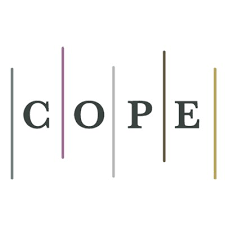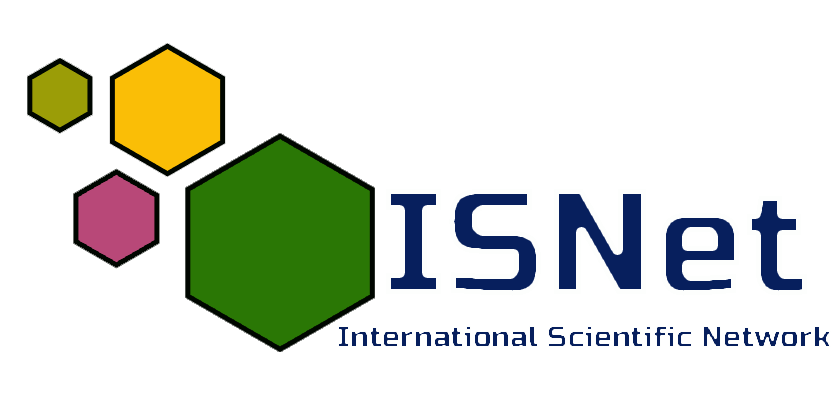Revolutionising Public Private Partnerships: A Transition to the Fifth Industrial Revolution
DOI:
https://doi.org/10.52547/ijimes.3.1.12DOR:
https://dorl.net/dor/20.1001.1.27832678.2023.3.1.2.6Keywords:
Public private partnership, innovation, supersmart society, fourth industrial revolution, fifth industrial revolutionAbstract
Purpose: The purpose of this article is to examine Public Private Partnerships (PPPs) in the Fifth Industrial Revolution (5IR). Government does not have the capacity to deliver services by itself. As a result, PPP have played an important role to assist government in delivering services in an efficient and reliable manner. Amongst the benefits of PPPs are value for money, risk transfer and affordability. Partnerships are increasingly important to assist government in achieving development goals. The fourth industrial revolution (4IR) presents a number of implications in terms of government service delivery. PPPs are necessary to navigate these changes. This article aims to determine how PPPs can be improved to transition to the 5IR. The 5IR entails a supersmart society where humans are the pivotal link in overseeing technology.
Methodology: This article is descriptive and conceptual in nature. Unobtrusive methods are used to synthesise and integrate extant research.
Findings: A conceptual model is developed to illustrate the necessary elements in forming a PPP ecosystem that is relevant to the 5IR and human-centric.
Originality/Value: Very little research has been done on the 5IR, particularly no research has been done on the purpose, scope and nature of public private collaboration for improving PPPs in the 5IR.
Downloads
References
Bates, L., Huque, R., Bhowmik, P., King, R., Elsey, H., Newell, J. and Walley, J. (2019). Partnering with Private Providers to Promote Long-Acting Contraceptives in Urban Bangladesh: A Mixed-Methods Feasibility Study. International Perspectives on Sexual & Reproductive Health, 45(1), 7-99. https://doi.org/10.1363/45e8219
Pearson, R. and Richardson, D. (2001). Business Networking in the Industrial Revolution. The Economic History Review, 54(4), 657-679.
Hai, D. T., Toan, N. Q., & Van Tam, N. (2022). Critical success factors for implementing PPP infrastructure projects in developing countries: the case of Vietnam. Innovative Infrastructure Solutions, 7, 1-13. https://doi.org/10.1007/s41062-021-00688-6
Jaakkola, E. (2020). Designing conceptual articles: Four approaches. AMS Review, 10, 18-26. https://doi.org/10.1007/s13162-020-00161-0.
Auriacombe, C.J. (2016). Towards the construction of unobtrusive research techniques: Critical considerations when conducting a literature analysis. African Journal of Public Affairs, 9(4), 1-19.
Hine, C. (2011). Internet Research and Unobtrusive Methods. Surrey Social Research Update, (61), 1.
Nie, X., Feng, K., Zhao, G., Fan, T. and Wang, S. (2021). The Evolutionary Game of Trust in Public-Private Partnership Project Networks. Mathematical Problems in Engineering. 7(19), 1-11. https://doi.org/10.1155/2021/5514708
Castelblanco, G., Guevara, J., Mesa, H., & Hartmann, A. (2022). Social legitimacy challenges in toll road PPP programs: Analysis of the Colombian and Chilean cases. Journal of management in engineering, 38(3), 05022002. https://doi.org/10.1061/(ASCE)ME.1943-5479.0001010
Liman, H.M., Sakajiki, A.M., Makusidi, M.A., Isah, I.B., Ahmed, F.U., Galadima, M., Yeldu, S.M. and Arkilla, B.M. (2021). Public-private partnership in Hemodialysis in Nigeria: A Comparative Analysis of Renal Centers Across Three Northwestern States, Annals of African Medicine, 20(2), 121-126. DOI: 10.4103/aam.aam_34_20
Batra, R. (2022). Review of public–private partnerships across building sectors in nine European countries: Key adaptations for PPP in housing. Engineering, Construction and Architectural Management, (ahead-of-print). https://doi.org/10.1108/ECAM-07-2021-0664
Tarkhanova, E., Shikhov, A. and Lazutina, D. (2019). Leading approaches to Public Private Partnerships (PPP) and infrastructural investment. Advances in Social Science, Education and Humanities Research, 3rd International Conference on Social, Economic, and Academic Leadership (ICSEAL 2019). DOI: 10.2991/icseal-19.2019.32
Kassai, R., Van Weel, C., Flegg, K., Tong, S.F., Han, T.M., Noknoy, S., Dashtseren, M., Le An, P., Ng, C.J., Khoo, E.M., Noh, K.M., Lee, M., Howe, A. and Goodyear-Smith, F. 2020. Priorities for primary health care policy implementation: Recommendations from the combined experience of six countries in the Asia-Pacific. Australian Journal of Primary Health, 26(5), 351-357. https://doi.org/10.1071/PY19194
Đorđević, A. and Rakić, B. (2021). Macroeconomic Aspects of Public-Private Partnership. Teme: Casopis za Društvene Nauke, 45(1), 367-382.
Poupaud, M., Antoine-Moussiaux, N., Dieuzy-Labaye, I. and Peyre, M. (2021). An evaluation tool to strengthen the collaborative process of the public-private partnership in the veterinary domain. PLoS ONE, 16(5), 21- 21. https://doi.org/10.1371/journal.pone.0252103
Strasser, S., Stauber, C., Shrivastava, R., Riley, P. and O’Quin, K. (2021). Collective insights of public-private partnership impacts and sustainability: A qualitative analysis. PLoS ONE, 16(7), 1-18. https://doi.org/10.1371/journal.pone.0254495
Sima, V., Gheorghe, I. G., Subić, J., & Nancu, D. (2020). Influences of the industry 4.0 revolution on the human capital development and consumer behavior: A systematic review. Sustainability, 12(10), 4035. https://doi.org/10.3390/su12104035
Ndung’u, N. and Signé, L. (2020). The Fourth Industrial Revolution and digitization will transform Africa into a global powerhouse. Capturing the Fourth Industrial Revolution: A regional and national agenda Foresight Africa. Retrieved October 12, 2021 from ForesightAfrica2020_Chapter5_20200110.pdf.
Nel, D. (2020). Allocation of Risk in Public Private Partnerships in Information and Communications Technology. International Journal of eBusiness and eGovernment Studies, 12(1), 17-32. https://doi.org/10.34111/ijebeg.202012102
Department of Arts and Culture. (2018). Policy Implications of the 4th Industrial Revolution for the Cultural and Creative Economy. Sourced on October, 12 2021 from https://cdn.lgseta.co.za/resources/research_and_reports/4IR%20Resources/Policy%20Implications%20of%20the%204th%20Industrial%20Revolution%20for%20the%20Cultural%20and%20Creative%20Economy_Department%20of%20Arts%20and%20Culture_2018.pdf.
National Planning Commission. (2020). Draft. Digital Futures: South Africa’s Digital Readiness for the Fourth Industrial Revolution. Retrieved on July, 12 2021 from https://www.nationalplanningcommission.org.za/assets/Documents/DIGITAL%20FUTURES%20-%20SOUTH%20AFRICA'S%20READINESS%20FOR%20THE%20FOURTH%20INDUSTRIAL%20REVOLUTION.pdf.
Naudé, W. (2017). Entrepreneurship, Education and the Fourth Industrial Revolution in Africa. IZA DP, 10855. Discussion Paper Series. IZA - Institute of Labor Economics. http://dx.doi.org/10.2139/ssrn.2998964
Brazil, Russia, India, China, and South Africa (BRICS) South Africa. (2018). Good Practices on Public-Private Partnership Frameworks. BRICS South Africa. Retrieved on October, 12 2021 from http://www.treasury.gov.za/comm_media/press/2018/2018113001%202nd%20Publication%20of%20BRICS%20PPP%20Frameworks.pdf.
Karr, J., Loh, K. and San Andres, E.A. (2020). COVID-19, 4IR and the Future of Work. Asia-Pacific Economic Cooperation. APEC Policy Support Unit Policy Brief, 34, June.
Malandraki-Miller, S. and Riley, P.R. (2021). Use of artificial intelligence to enhance phenotypic drug discovery. Drug Discovery Today, 26(4), 887-901. https://doi.org/10.1016/j.drudis.2021.01.013
Hatfield, M. (2020). Professionally Responsible Artificial Intelligence. Arizona State Law Journal, 51(3), 1057-1122.
Gilles, J. (2019). Smart city projects in the continuity of the urban socio-technical regime: The French case. Information Polity, 24(2019), 325-343. DOI: 10.3233/IP-190128
Ghosh, A. (2011). Development of ICT Infrastructure through Public Private Partnership. Retrieved on October, 12 2021 from https://www.researchgate.net/publication/340490683_Development_of_ICT_Infrastructure through_Public_Private_Partnership/citation/download.
Rahman, A.S.M. (2016). Prospects of PPP in Expanding ICT Services in Rural Bangladesh: A Case of Union Digital Center. International Journal of Economic Finance, 8(2), 163-170. DOI:10.5539/ijef.v8n2p163
Ølnes, S., Ubacht, J. and Janssen M. (2017). Blockchain in government: Benefits and implications of distributed ledger technology for information sharing. Government Information Quarterly, 34(3), 355-364. https://doi.org/10.1016/j.giq.2017.09.007
Tapscott, D. and Tapscott, A. (2016). Blockchain revolution: how the technology behind bitcoin is changing money, business, and the world. Penguin United States of America.
Schwabe, G., Bolívar, R. and Scholl, H.J. (2019). The role of public agencies in blockchain consortia: Learning from the Cardossier. Information Polity: The International Journal of Government & Democracy in the Information Age, 24(4), 437-451. DOI: 10.3233/IP-190147
Petrov, D. (2020). A New Digital Age in Finance: Blockchain and Smart Contracts. Horizons Series A, 26, 7-20.
Nel, D. and Masilela, L. (2020). Open Governance for Improved Service Delivery Innovation in South Africa. International Journal of eBusiness and eGovernment Studies, 12(1), 33-47. https//doi.org/10.34111/ijebeg.202012103
Catalá‐Pérez, D. and de‐Miguel‐Molina, M. (2021). Analyzing Territorial and Sectorial Dimensions of Public-Private Partnerships in Science, Technology, and Innovation policies. Review of Policy Research, 38(1), 113-138. https://doi.org/10.1111/ropr.12405
United Nations Economic and Social Commission for Asia and the Pacific (UN ESCAP). (2014). Public Private Partnerships Training Module. Retrieved on March, 12 2022 from https://www.unescap.org/sites/default/files/ESCAP%20Training%20Modules.pdf.
Stevenson, M. (2017). PATH: pioneering innovation for global health at the public-private interface. Third World Quarterly, 38(8), 1873-1893. https://doi.org/10.1080/01436597.2016.1233491
2016 Policy Profile. Retrieved on July, 12 2021 from sti_in_outlook-2016-10-en.pdf (oecd-ilibrary.org).
Thompson, O. and Arowosafe, C.F. (2020) Developing a Public-Private Partnerships Model for Sustainable Management of Ecotourism Sites in Nigeria. Scientific Papers Series: Management, Economic Engineering in Agriculture and Rural Development, 20(4), 527-538.
Verweij, S., Loomans, O. and Leenderste, W. (2020). The Role of the Public Partner in Innovation in Transport Infrastructure PPPs: A Qualitative Comparative Analysis of Nine Dutch Projects. DOI: 10.1177/1087724X19847215
Hugo, E.L. and Holm, J.E.W. (2020). Synthesis and Evaluation of an Industry 4.0 Control Room. South African Journal of Industrial Engineering, 31(3), 1-12. http://dx.doi.org/10.7166/31-3-2423
Golić, Z. (2019). Finance and Artificial Intelligence: The Fifth Industrial Revolution and its impact on the financial sector. CORE, 19, 67-81.
Foreign Policy. How Japanese business are preparing for a super smart society. Retrieved on March, 10 2022 from https://foreignpolicy.com/sponsored/how-japanese-businesses-are-preparing-for-a-super-smart-society/.
Keidanren. (2017). Revitalizing Japan by Realizing Society 5.0: Action Plan for Creating the Society of the Future Overview. Retrieved on February 3, 2022 from https://www.keidanren.or.jp/en/policy/2017/010_overview.pdf.
Sarfraz, Z., Sarfraz, A., Iftikar, H.M. and Akhund, R. (2021). Is COVID-19 pushing us to the Fifth Industrial Revolution (Society 5.0)? Pakistan Journal of Medical Sciences, 37(2), 591-594. DOI: 10.12669/pjms.37.2.3387
Maxwell, I. (2014). The fifth industrial revolution. Chemistry in Australia.
George, A.S. and George, A.S.H. (2020). Industrial Revolution 5.0: The Transformation of the Modern Manufacturing Process to Enable Man and Machine to Work Hand in Hand, Seybold Report, 15(9), 214-234. https://doi.org/10.31004/edukatif.v4i1.1956
Kukah, A. S. K., Badu, E., Owusu-Manu, D. G., & Edwards, D. J. (2023). Motivations for engaging in PPP power projects in Ghana: comparison of the public and private sectors. International Journal of Energy Sector Management. 17(1), 187-205. https://doi.org/10.1108/IJESM-09-2021-0002
Published
How to Cite
Issue
Section
License
Copyright (c) 2023 Danielle Nel-Sanders

This work is licensed under a Creative Commons Attribution 4.0 International License.












